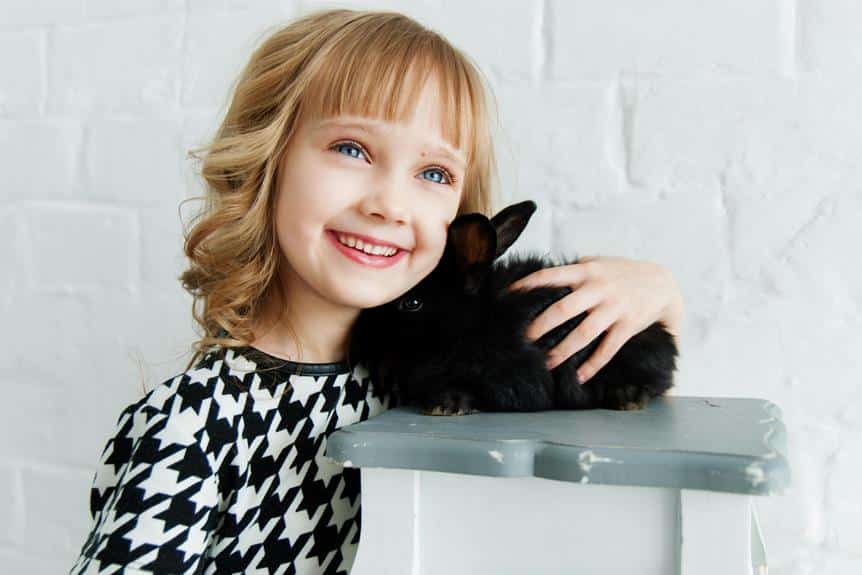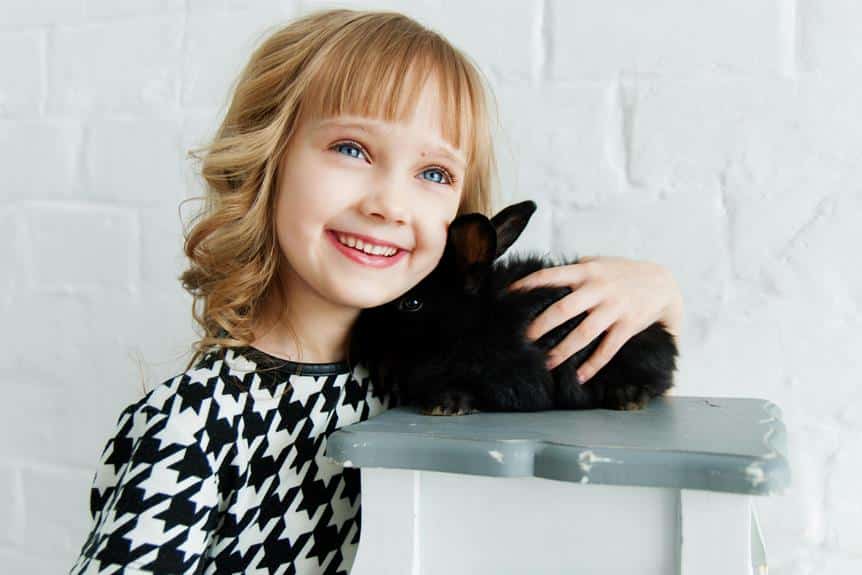Table of Contents
Rabbits are adorable pets that require proper care and attention to stay healthy. As a responsible pet owner, it is essential to recognize the signs of illness in your rabbit to ensure timely treatment.
Rabbits are prey animals, which means they often hide their symptoms of illness until they are severely ill. Therefore, it is crucial to keep a close eye on your rabbit’s behavior, eating habits, and physical appearance to detect any changes that may indicate an underlying health issue.
One of the most common signs of illness in rabbits is a change in their eating habits. If your rabbit is not eating or drinking as much as they usually do, it could be an indication of a health problem. Additionally, rabbits that are experiencing digestive issues may have loose stools or diarrhea. It is essential to monitor your rabbit’s bowel movements and seek veterinary care if you notice any significant changes.
Another sign of illness in rabbits is a change in their behavior. Rabbits that are sick or in pain may become lethargic, hide more often, or show signs of aggression. Additionally, rabbits that are experiencing respiratory issues may have difficulty breathing or show signs of wheezing. It is crucial to pay attention to your rabbit’s behavior and seek veterinary care if you notice any concerning changes.
Behavioral Signs of Illness
When it comes to recognizing signs of illness in your rabbit, it’s important to pay attention to their behavior. Changes in eating habits, lethargy, and changes in grooming habits can all be indicators that your rabbit is not feeling well.
Changes in Eating Habits
If your rabbit suddenly stops eating or drinking or begins to eat less than usual, it could be a sign of illness. Rabbits have a delicate digestive system, and any changes in their eating habits should be taken seriously. Additionally, if your rabbit is eating less than usual, it’s important to monitor their weight to ensure they are not losing too much.
Lethargy and Lack of Energy
If your rabbit seems lethargic or lacks energy, it could be a sign of illness. Rabbits are naturally active animals, so any sudden change in their activity level should be taken seriously. If your rabbit is spending more time sleeping than usual, or seems uninterested in playing or exploring, it’s important to monitor their behavior and seek veterinary care if necessary.
Changes in Grooming Habits
Rabbits are fastidious animals and spend a lot of time grooming themselves. If your rabbit suddenly stops grooming or is unable to groom themselves properly, it could be a sign of illness. Additionally, if your rabbit is over-grooming or pulling out their fur, it could be a sign of stress or illness.
In conclusion, paying attention to your rabbit’s behavior is crucial in recognizing signs of illness. Changes in eating habits, lethargy, and changes in grooming habits can all be indicators that your rabbit is not feeling well. If you notice any of these signs, it’s important to seek veterinary care as soon as possible.
Physical Signs of Illness
Rabbits are notorious for hiding signs of illness, so it’s important to pay close attention to their behavior and physical appearance. Here are some common physical signs of illness in rabbits:
Discharge from Eyes or Nose
If you notice a discharge from your rabbit’s eyes or nose, it could be a sign of an upper respiratory infection. Other signs of respiratory infection include sneezing, coughing, and labored breathing. If you notice any of these symptoms, it’s important to take your rabbit to the vet as soon as possible.
Changes in Urine or Feces
Changes in your rabbit’s urine or feces can also be a sign of illness. If your rabbit’s urine is cloudy or has a strong odor, it could be a sign of a urinary tract infection. If your rabbit’s feces are smaller than usual or have a different texture or color, it could be a sign of gastrointestinal issues. It’s important to monitor your rabbit’s litter box habits and take note of any changes.
Skin Irritation or Hair Loss
Skin irritation or hair loss can be a sign of a variety of different health issues in rabbits. If your rabbit is scratching excessively or has bald patches, it could be a sign of mites or other skin parasites. If your rabbit has scabs or sores on their skin, it could be a sign of a bacterial or fungal infection. It’s important to check your rabbit’s skin regularly and take note of any changes.
Remember, if you notice any signs of illness in your rabbit, it’s important to take them to the vet as soon as possible. Rabbits can deteriorate quickly if left untreated, so early intervention is key.
Emergency Signs
If your rabbit is showing any of the following signs, it is important to seek emergency veterinary care immediately.
Difficulty Breathing
If your rabbit is having trouble breathing, it is a medical emergency. Signs of difficulty breathing may include open-mouth breathing, rapid breathing, wheezing, or gasping for air. You may also notice your rabbit is lethargic, has a blue tint to their gums or tongue, or is unable to move air in and out of their lungs.
Seizures or Convulsions
If your rabbit is having a seizure or convulsion, it is important to seek veterinary care immediately. Signs of a seizure may include muscle spasms, loss of consciousness, or uncontrolled movements. Seizures can be caused by a variety of underlying medical conditions, including toxins, infections, or brain damage.
Sudden Collapse or Loss of Consciousness
If your rabbit suddenly collapses or loses consciousness, it is important to seek veterinary care immediately. Signs of collapse may include weakness, lethargy, or inability to stand or move. Loss of consciousness may be accompanied by seizures or convulsions.
In any of these emergency situations, it is important to remain calm and seek veterinary care immediately. Your veterinarian will be able to provide the appropriate treatment and care for your rabbit.
Preventative Measures
Regular Health Checkups
One of the best ways to keep your rabbit healthy is to take them to the vet for regular checkups. Rabbits should have a checkup at least once a year, even if they seem healthy. During these checkups, the vet will examine your rabbit and check for any signs of illness or disease. They may also recommend certain preventative measures, such as vaccinations or parasite control.
Proper Diet and Nutrition
A healthy diet is essential for keeping your rabbit in good health. Make sure your rabbit has access to fresh hay, clean water, and a variety of vegetables. Avoid feeding your rabbit too many treats or sugary foods, as these can lead to obesity and other health problems. It’s also important to make sure your rabbit’s diet is balanced and contains all the nutrients they need to stay healthy.
Clean Living Environment
A clean living environment is essential for preventing illness in your rabbit. Make sure your rabbit’s cage or hutch is cleaned regularly, and that they have plenty of space to move around. Avoid keeping your rabbit in a damp or dirty environment, as this can lead to respiratory problems and other health issues. You should also make sure your rabbit’s bedding is clean and dry, and that they have access to fresh air and sunlight.
In summary, regular health checkups, proper diet and nutrition, and a clean living environment are all important preventative measures for keeping your rabbit healthy. By following these guidelines, you can help ensure that your rabbit stays happy and healthy for years to come.



